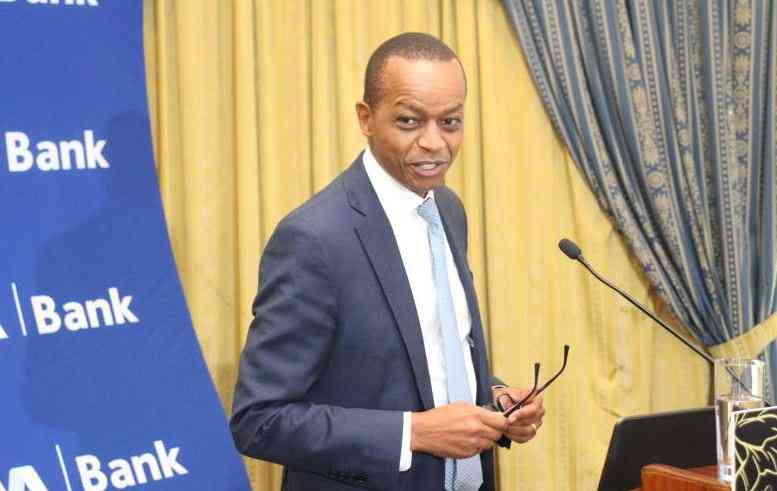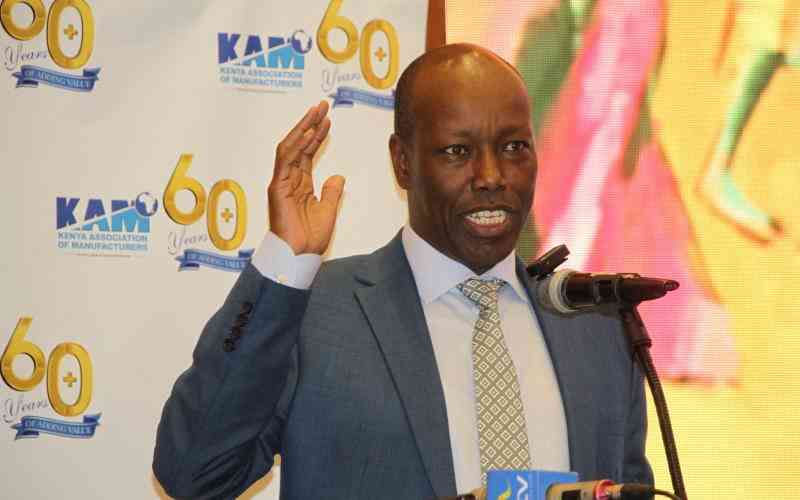
Besides the many medals that our athletes rake in every year, Kenya has made a name for itself on the global scene as a country brimming with potential, especially in the digital world. With an impressive smartphone penetration rate of 61 per cent and internet penetration at 42 per cent, Kenya is home to M-Pesa and other game-changing technologies. Needless to say, M-Pesa has revolutionised money transfers and advanced financial inclusion in a remarkably transformative way.
As the world steps boldly deeper into the age of artificial intelligence (AI), Kenya must ensure it gets things right early. The benefits of AI are immense, but the risks of falling behind are daunting to imagine.
AI is both an opportunity and a challenge. While discussions in the Global North focus on AI replacing jobs in creative industries such as AI, Hollywood and media, many people in the Global South still lack access to basic electricity and internet connectivity. While the Kenyan government is rolling out 100,000 km of fibre-optic cable, mobile ownership remains a challenge, despite the introduction of affordable smartphones with long to medium-term repayment plans. This means that while AI is set to increase productivity and revolutionise the workplace by automating repetitive tasks, millions of Africans risk being left behind, missing out on the advantages of this technological leap.
Again, AI presents serious ethical challenges. One major concern is misinformation and disinformation including the use of AI to spread fake news, tarnish reputations and manipulate public opinion. Copyright issues have also emerged as seen in Europe where newspapers have been running front-page editorials warning against large language models mining copyrighted materials such as books and multimedia content, without permission.
Another pressing concern is massive job losses particularly in customer service, banking, agriculture, and manufacturing—sectors heavily reliant on repetitive tasks. Besides job losses, Kenya and other developing nations must recognise that plunging into AI without a proper strategy will only worsen trade deficits as the production of AI assets remains concentrated in a few powerful economies. This is especially critical considering that Africa is home to key raw materials, such as coltan—essential for manufacturing AI-related hardware and electric vehicle batteries. The renewed interest by Western countries in the Democratic Republic of Congo, Zimbabwe and Kenya for these minerals highlights this reality.
If left unchecked, AI could also exacerbate cybercrime, with increased black and gray hat hacking by tech-savvy IT graduates who are yet to be absorbed into the job market. Add to that wealth disparities as it is primarily the elite and large corporations who can afford and benefit from cutting-edge technologies. Furthermore, there are growing concerns about data security in Kenya and across Africa. Are our data protection policies and cybersecurity measures robust enough to prevent breaches and foreign exploitation?
Despite these challenges, AI offers immense opportunities, provided the right policies and strategies are put in place. To ensure digital inclusion, Kenya must invest in AI education from an early age. This is especially so in healthcare where AI products are enhancing better health outcomes and revolutionising drug discovery. Encouragingly, some African countries have already introduced coding classes in lower primary school. If AI-related skills are integrated into the education system, future generations will be far better prepared to compete in a world increasingly driven by artificial intelligence.
Organisations such as Zeal de Lionaire llc-USA, owners of Digital Assets Trading are working to democratise AI access, but much more needs to be done to level the playing field. Beyond early education, universities and middle-level colleges should align their curricula with the demands of an evolving AI market. Public-private partnerships in AI could also transform Kenya’s economy.
Africa should borrow a leaf from. Despite lacking vast mineral resources, the country leveraged semiconductor technology to propel itself into the league of economic giants. Africa, on the other hand, continues to export raw minerals without adding significant value. Instead of merely exporting gold and diamonds, why not develop AI-driven industries that require these minerals, ensuring that Africa benefits from its own resources? In the case of AI, Kenya could collaborate with global investors to manufacture electric vehicle batteries locally.
To reap the benefits of AI, Kenya must invest in local AI solutions that reflect our cultural and economic needs. With adequate funding and training, Kenyan tech entrepreneurs—many of them struggle to earn a living online —could soon be selling homegrown AI solutions on a global scale, generating wealth and creating jobs at an unprecedented level. It is sad that high-potential and highly scalable innovations are seloed in research papers and localized without making any industry impact.
I do not claim to have all the answers, but one thing is clear: If Kenyan youth are empowered through AI education and training, they can move from alarming levels of unemployment to becoming key players in the global digital economy. Quality training, coupled with hands-on intership programmes , linked with global digital assets trading platforms, can turn their skills to wealth.
Just as education has long been a game-changer, upskilling the youth in AI holds immense potential for transforming Kenya’s economy.
With the right policies, strategic investments, and digital inclusivity, Kenya can position itself as a leader in AI adoption rather than a passive consumer of foreign innovations. Just like M-Pesa before it, the AI space could be on the cusp of unlocking more dollars for the economy than tourism and sports combined.
 The Standard Group Plc is a multi-media organization with investments in media
platforms spanning newspaper print operations, television, radio broadcasting,
digital and online services. The Standard Group is recognized as a leading
multi-media house in Kenya with a key influence in matters of national and
international interest.
The Standard Group Plc is a multi-media organization with investments in media
platforms spanning newspaper print operations, television, radio broadcasting,
digital and online services. The Standard Group is recognized as a leading
multi-media house in Kenya with a key influence in matters of national and
international interest.
 The Standard Group Plc is a multi-media organization with investments in media
platforms spanning newspaper print operations, television, radio broadcasting,
digital and online services. The Standard Group is recognized as a leading
multi-media house in Kenya with a key influence in matters of national and
international interest.
The Standard Group Plc is a multi-media organization with investments in media
platforms spanning newspaper print operations, television, radio broadcasting,
digital and online services. The Standard Group is recognized as a leading
multi-media house in Kenya with a key influence in matters of national and
international interest.











